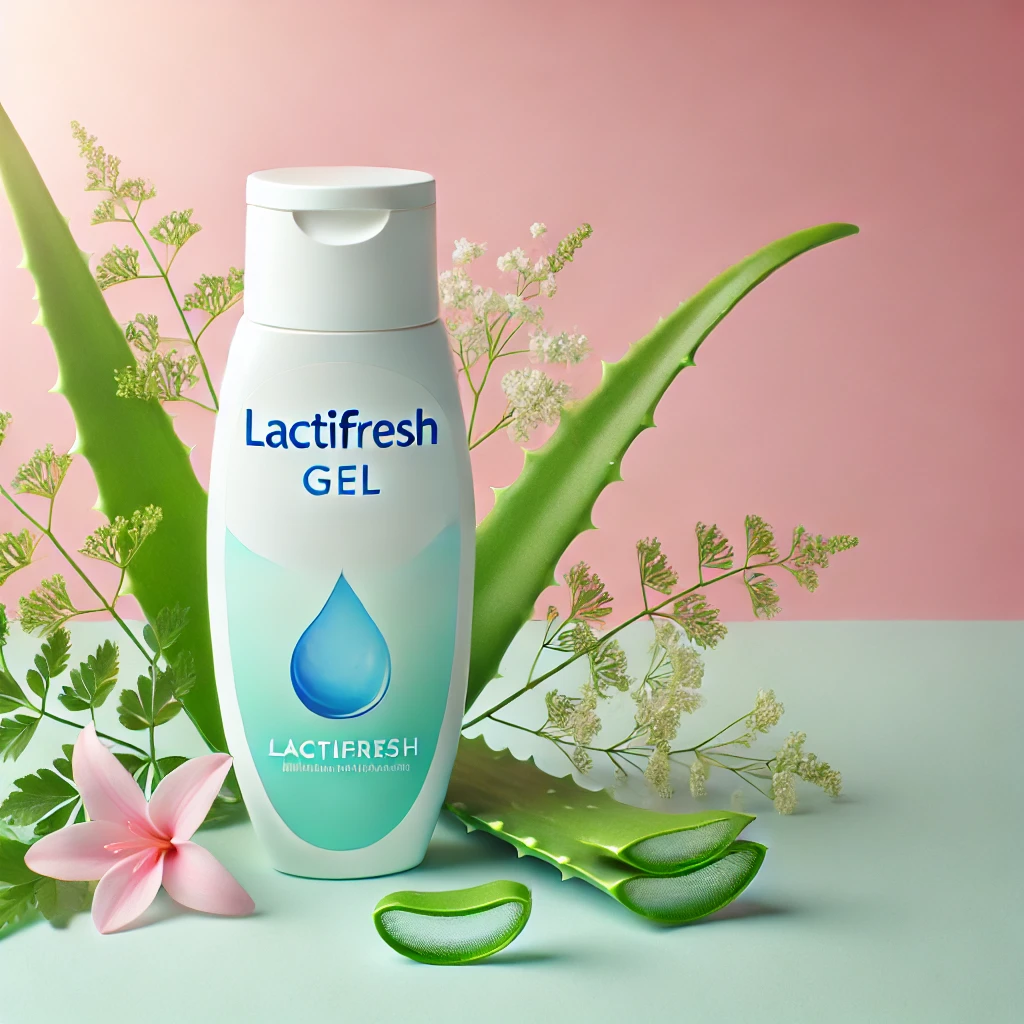Table of Contents
Introduction
Women’s health is a topic that touches every stage of life, yet it’s often overlooked or misunderstood. Have you ever wondered why women’s health needs are unique, or how small changes in lifestyle can lead to profound improvements in well-being? From physical fitness to mental resilience, reproductive health to aging gracefully, women face a myriad of health challenges and opportunities that deserve attention and care.
In this blog, we’ll explore the essential aspects of women’s health, offering practical insights and actionable tips to help you take charge of your well-being. Whether you’re navigating hormonal changes, seeking ways to boost your energy, or simply looking to stay informed, this guide is designed to empower you with knowledge and confidence. Let’s dive into the journey of understanding, nurturing, and celebrating women’s health—because every woman deserves to thrive.
Women’s Health
Understanding Women’s Health
Women’s health is a multifaceted topic, shaped by biological, social, and environmental factors. But what makes it so unique? Unlike men, women experience distinct life stages—such as puberty, pregnancy, and menopause—that bring specific health challenges and needs. Understanding these nuances is the first step toward taking control of your well-being.
Why Women’s Health is Unique
Women’s bodies are designed to support life, but this incredible capability comes with its own set of complexities. Hormonal fluctuations, for instance, play a significant role in everything from mood to metabolism. Did you know that estrogen and progesterone not only regulate reproductive health but also impact bone density, heart health, and even brain function? This interconnectedness means that addressing one aspect of health can have a ripple effect on others.
Key Life Stages and Their Health Implications
From adolescence to post-menopause, each phase of a woman’s life brings unique health considerations:
- Adolescence: This stage is marked by puberty, where hormonal changes can lead to issues like irregular periods or acne. It’s also a critical time for building healthy habits.
- Reproductive Years: Fertility, pregnancy, and childbirth are central during this phase. Conditions like PCOS or endometriosis may also arise, requiring specialized care.
- Menopause and Beyond: As estrogen levels decline, women may experience symptoms like hot flashes, weight gain, or osteoporosis. Proactive care can ease this transition.
Understanding women’s health isn’t just about recognizing the challenges—it’s about embracing the opportunities to thrive. By staying informed and proactive, you can navigate each life stage with confidence and vitality. Let’s move forward and explore how physical health and wellness play a pivotal role in your overall well-being.
Physical Health and Wellness
When it comes to women’s health, physical wellness is the foundation of a vibrant, energetic life. But with so much information out there, where do you start? The key is to focus on the essentials: regular health screenings, balanced nutrition, and consistent exercise. Let’s break it down into actionable steps that can help you feel your best at every age.

Essential Health Screenings for Women
Prevention is always better than cure, and regular health screenings are your first line of defense. Here are some critical tests to keep on your radar:
- Pap Smears and HPV Tests: Essential for detecting cervical cancer early, these screenings are recommended every 3-5 years for women aged 21-65.
- Mammograms: Starting at age 40 (or earlier if you have a family history), mammograms can help detect breast cancer in its early stages.
- Bone Density Scans: Post-menopausal women should consider this test to check for osteoporosis, especially if you have risk factors like low calcium intake or a sedentary lifestyle.
Nutrition Tips for Optimal Women’s Health
What you eat directly impacts how you feel, and small changes can make a big difference. Here’s how to fuel your body for long-term wellness:
- Prioritize Whole Foods: Fill your plate with fruits, vegetables, lean proteins, and whole grains. These nutrient-dense foods support energy levels and overall health.
- Don’t Skip Calcium and Vitamin D: These are crucial for bone health, especially as you age. Think dairy, leafy greens, and fortified foods.
- Stay Hydrated: Water is essential for everything from digestion to skin health. Aim for at least 8 glasses a day, and more if you’re active.
The Role of Exercise in Preventing Chronic Conditions
Physical activity isn’t just about looking good—it’s about feeling good and staying healthy. Here’s why exercise is a non-negotiable part of women’s health:
- Heart Health: Regular cardio, like walking, swimming, or cycling, can reduce your risk of heart disease, the leading cause of death for women.
- Strength Training: Lifting weights or doing easy bodyweight exercises helps maintain muscle mass and bone density, which is especially important as you age.
- Mental Health Boost: Exercise releases endorphins, which can help reduce stress, anxiety, and symptoms of depression.
Incorporating these habits into your daily routine doesn’t have to be overwhelming. Start small—schedule that overdue screening, add an extra serving of veggies to your meals, or take a 10-minute walk during your lunch break. Remember, physical health is a journey, not a destination. By taking these steps, you’re investing in a healthier, happier you.
Next, let’s dive into the often-overlooked but equally important aspect of women’s health: mental and emotional well-being.
Mental and Emotional Well-being
When we talk about women’s health, it’s easy to focus solely on the physical aspects. But what about the mind? Mental and emotional well-being are just as critical to your overall health, yet they’re often neglected. Have you ever felt overwhelmed by stress, struggled with anxiety, or simply felt emotionally drained? You’re not alone. Let’s explore how you can nurture your mental health and build resilience to thrive in every area of life.
The Impact of Stress on Women’s Health
Stress is an inevitable part of life, but chronic stress can take a toll on your body and mind. For women, who often juggle multiple roles—caregiver, professional, partner, friend—the effects can be particularly pronounced. Did you know that prolonged stress can lead to:
- Hormonal Imbalances: Stress triggers the release of cortisol, which can disrupt your menstrual cycle and even affect fertility.
- Weakened Immunity: High stress levels make you more susceptible to illnesses, from colds to chronic conditions.
- Mental Health Challenges: Anxiety, depression, and burnout are common outcomes of unmanaged stress.
The good news? You can take steps to manage stress effectively.

Strategies for Managing Anxiety and Depression
If you’ve ever felt like anxiety or depression is holding you back, you’re not alone. These conditions are more common than you might think, especially among women. Here are some proven strategies to help you regain balance:
- Practice Mindfulness: Techniques like meditation, deep breathing, or yoga can help calm your mind and reduce anxiety.
- Stay Connected: Reach out to friends, family, or support groups. Talking about your feelings can lighten the emotional load.
- Seek Professional Help: Therapy or counseling can provide tools and insights to manage mental health challenges effectively.
Your mental and emotional health is the backbone of your overall well-being. By prioritizing self-care, seeking support when needed, and adopting healthy coping mechanisms, you can create a life that feels balanced and fulfilling.
Next, let’s shift our focus to another vital aspect of women’s health: reproductive and sexual health. This area is often shrouded in stigma, but it’s time to bring it into the light and empower you with knowledge.
Reproductive and Sexual Health
Reproductive and sexual health is a cornerstone of women’s overall well-being, yet it’s often surrounded by silence or stigma. Have you ever felt too embarrassed to ask questions about your menstrual cycle, fertility, or sexual health? You’re not alone. Let’s break down these topics into clear, actionable insights so you can feel empowered to take charge of this vital aspect of your health.
Understanding Menstrual Health and Disorders
Your menstrual cycle is more than just a monthly occurrence—it’s a window into your overall health. Irregularities or discomfort can signal underlying issues that need attention. Here’s what you should know:
- Common Disorders: Conditions like polycystic ovary syndrome (PCOS), endometriosis, and fibroids can cause painful periods, heavy bleeding, or fertility challenges.
- Tracking Your Cycle: Apps or journals can help you monitor patterns and identify irregularities. This data can be invaluable when discussing concerns with your healthcare provider.
- When to Seek Help: If you experience severe pain, extremely heavy bleeding, or cycles that are consistently irregular, it’s time to consult a doctor.
Fertility Awareness and Family Planning
Whether you’re planning to start a family or simply want to understand your body better, fertility awareness is key. Here’s how to navigate this important topic:
- Know Your Window: Understanding ovulation—the time when you’re most fertile—can help with both conception and contraception.
- Lifestyle Factors: Diet, exercise, and stress management all play a role in fertility. For example, maintaining a healthy weight can improve your chances of conceiving.
- Exploring Options: If you’re facing fertility challenges, treatments like IVF or fertility medications may be options. Don’t hesitate to seek guidance from a specialist.
Addressing Common Sexual Health Concerns
Sexual health is an integral part of your overall well-being, yet many women feel uncomfortable discussing it. Let’s normalize the conversation:
- Pain During Intercourse: This isn’t something you should “just deal with.” Causes can range from hormonal changes to infections, and treatments are available.
- Low Libido: Stress, hormonal imbalances, or relationship issues can all contribute. Open communication with your partner and healthcare provider can help.
- STI Prevention: Regular screenings and safe practices are essential for protecting your sexual health. Don’t shy away from discussing STIs with your doctor.
Reproductive and sexual health is deeply personal, but it doesn’t have to be intimidating. By staying informed and proactive, you can make decisions that align with your goals and values. Remember, your body is unique, and understanding it is the first step toward empowerment.
Next, let’s explore how aging impacts women’s health and how you can embrace this stage of life with vitality and confidence.
Aging and Long-term Health
Aging is a natural part of life, but for women, it often comes with unique health challenges and opportunities. Have you ever wondered how to navigate menopause gracefully or maintain your independence as you grow older? The key lies in understanding the changes your body goes through and taking proactive steps to support your long-term health. Let’s explore how you can embrace aging with vitality and confidence.

Navigating Menopause and Its Symptoms
Menopause is a significant milestone in a woman’s life, marking the end of reproductive years. While it’s a natural transition, the symptoms can be challenging. Here’s how to manage them effectively:
- Common Symptoms: Hot flashes, night sweats, mood swings, and weight gain are typical during menopause. These occur due to declining estrogen levels.
- Hormone Replacement Therapy (HRT): For some women, HRT can alleviate severe symptoms. However, it’s not for everyone—consult your doctor to see if it’s right for you.
- Natural Remedies: Lifestyle changes like a balanced diet, regular exercise, and stress management can help ease symptoms. Foods rich in phytoestrogens, like soy and flaxseeds, may also provide relief. Check our article about exercises for osteoporosis.
Bone Health and Preventing Osteoporosis
As estrogen levels drop during and after menopause, bone density can decline, increasing the risk of osteoporosis. But there’s plenty you can do to protect your bones:
- Calcium and Vitamin D: These nutrients are essential for bone health. Aim for 1,200 mg of calcium and 800-1,000 IU of vitamin D daily through diet or supplements.
- Weight-Bearing Exercise: Activities like walking, dancing, or strength training help maintain bone density and improve balance, reducing the risk of falls.
- Regular Screenings: A bone density test (DEXA scan) can assess your risk of osteoporosis and guide prevention strategies.
Maintaining Vitality and Independence in Later Years
Aging doesn’t mean slowing down—it’s an opportunity to focus on what truly matters. Here’s how to stay vibrant and independent as you age:
- Stay Active: Regular physical activity boosts energy, improves mood, and supports overall health. Even gentle exercises like yoga or swimming can make a big difference.
- Nurture Social Connections: Staying socially engaged can improve mental health and cognitive function. Join clubs, volunteer, or simply spend time with loved ones.
- Prioritize Mental Health: Aging can bring emotional challenges, from retirement adjustments to loss of loved ones. Therapy or support groups can provide valuable coping tools.
Aging is a journey, and with the right mindset and habits, it can be a fulfilling one. By focusing on preventive care, staying active, and embracing change, you can enjoy a high quality of life well into your later years.
Next, let’s dive into the importance of preventative care and healthy habits, and how small, consistent changes can lead to long-term benefits for your health.
Preventative Care and Healthy Habits
When it comes to women’s health, prevention is your greatest ally. Think about it: wouldn’t you rather take small, consistent steps to stay healthy than deal with the stress of treating an illness later? Preventative care and healthy habits are the building blocks of long-term well-being. Let’s explore how you can make these practices a seamless part of your life.
The Importance of Regular Check-ups
Routine health screenings and check-ups are like a safety net—they catch potential issues early, when they’re easier to manage. Here’s what to prioritize:
- Annual Physicals: These visits allow your doctor to monitor your overall health and spot any red flags.
- Dental and Eye Exams: Don’t overlook these! Oral and vision health are closely linked to your general well-being.
- Vaccinations: Stay up-to-date on vaccines like the flu shot, HPV vaccine, and shingles vaccine, especially as you age. For more information, read our blog about vaccines during pregnancy.
Lifestyle Changes to Reduce Women’s Health Risks
Small, consistent changes can have a big impact on your health over time. Here are some habits to consider adopting:
- Quit Smoking: If you smoke, quitting is one of the best things you can do for your health. It reduces your risk of heart disease, cancer, and respiratory issues. Read our blog about the most effective ways to quit smoking.
- Limit Alcohol: Moderation is key. Stick to one drink per day or less to protect your liver, heart, and overall health.
- Sleep Well: Aim for 7-9 hours of quality sleep each night. Poor sleep is linked to weight gain, weakened immunity, and even mental health issues.
Preventative care and healthy habits aren’t about perfection—they’re about progress. By taking small, consistent steps, you can create a lifestyle that supports your long-term health and happiness. Remember, it’s never too late to start.
Finally, remember that your health is your greatest asset. By staying informed, proactive, and empowered, you can create a life filled with vitality, resilience, and joy.
Conclusion
Women’s health is a journey—one that evolves with every stage of life. From understanding your unique health needs to embracing preventative care, nurturing your mental well-being, and advocating for access to quality healthcare, every step you take is an investment in your future. But here’s the question: are you ready to take charge of your health and make it a priority?
Throughout this blog, we’ve explored the many facets of women’s health, offering insights and actionable tips to help you thrive. Whether it’s scheduling that overdue screening, adopting healthier habits, or simply learning to listen to your body, small changes can lead to profound results. Remember, your health isn’t just about avoiding illness—it’s about creating a life filled with energy, confidence, and joy.
As you move forward, keep this in mind: you are your own best advocate. Don’t hesitate to ask questions, seek support, or make your voice heard. Your health is worth it. And while the journey may have its challenges, you’re never alone. From healthcare providers to online communities, there are countless resources and people ready to support you every step of the way.
So, what’s your next step? Maybe it’s booking that check-up, trying a new recipe, or simply taking a moment to breathe and reflect. Whatever it is, know that you’re capable of creating a healthier, happier you. Here’s to embracing the power of women’s health and living your best life—today, tomorrow, and every day after.
Thank you for joining us on this journey. Your health matters, and so do you.
References
- Office on Women’s Health (OWH) – U.S. Department of Health & Human Services
- World Health Organization (WHO) – Women’s Health
- American Heart Association – Go Red for Women
- National Institute on Aging (NIA)
- Planned Parenthood
- Centers for Disease Control and Prevention (CDC) – Women’s Health
- Harvard Health Publishing – Women’s Health
- National Osteoporosis Foundation
- Mental Health America (MHA)




